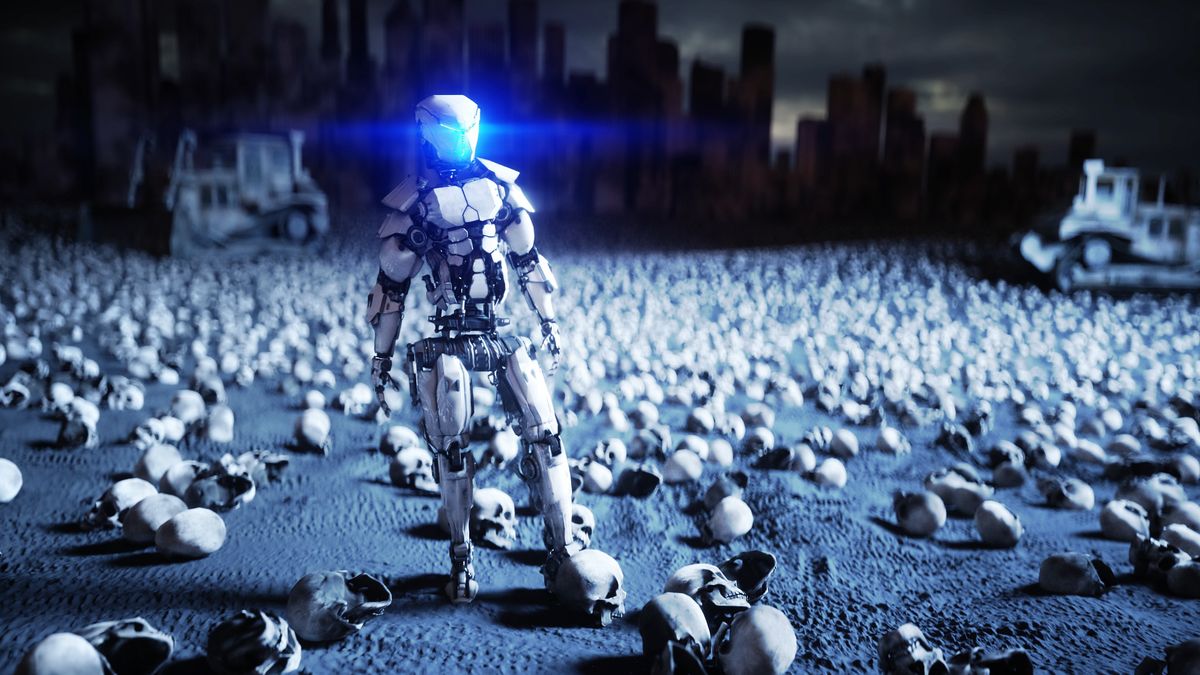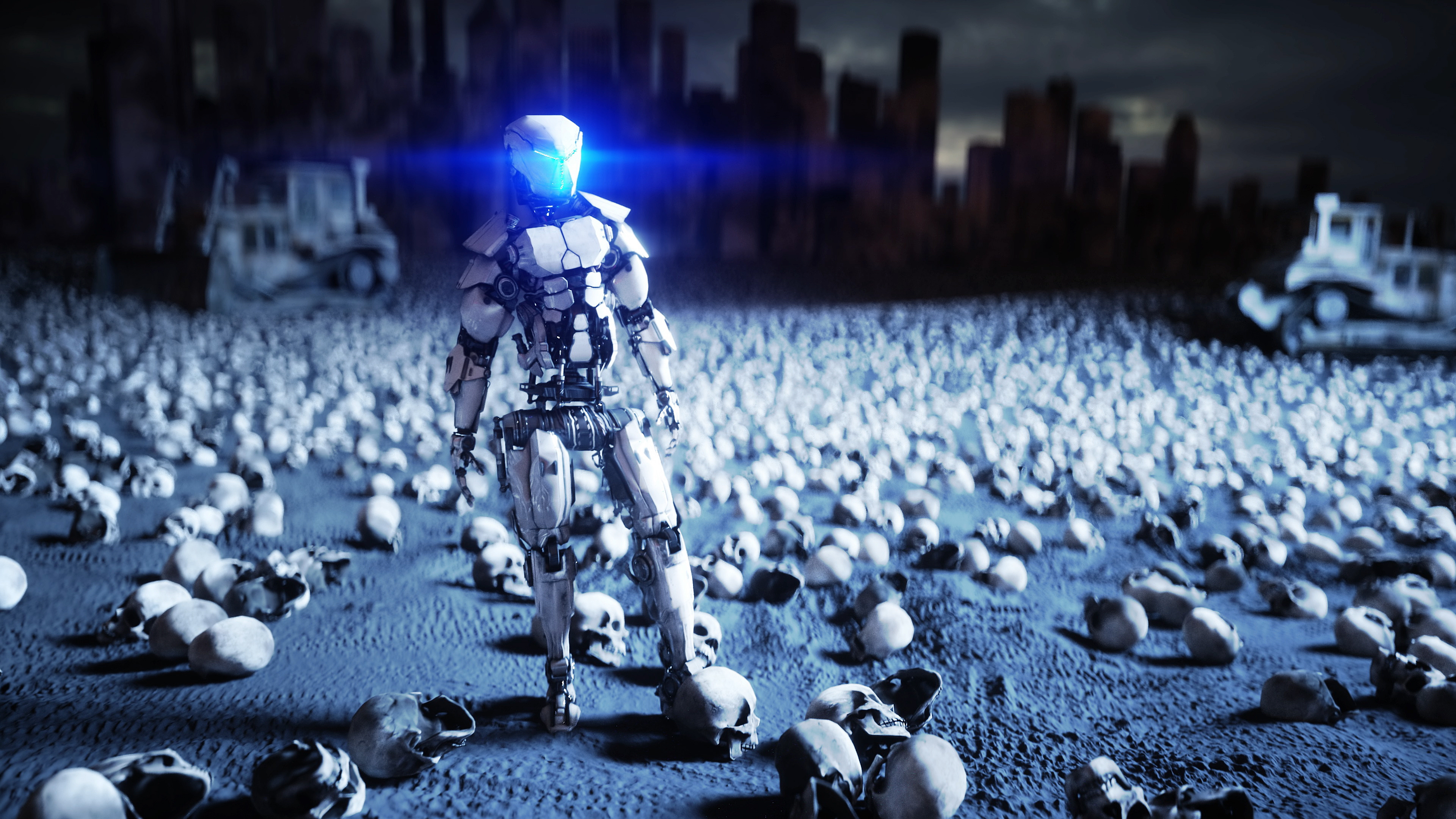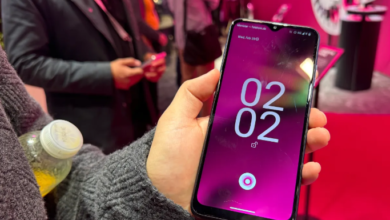AI is going to ruin humanity – just not in the way you might expect


Attention all humans! This is Christian Guyton, your friendly TechRadar Computing Editor and definitely not a robot, here to give you a little heads up about the impacts of AI expansion on human intelligence.
Now, I know what you’re thinking, “AI is making our lives so much easier, why should I be worried?” And you’re not wrong! AI has revolutionized many aspects of our lives, from navigation to language translation.
However, if we’re not careful, our reliance on AI could lead to a decline in human intelligence. When we rely on AI to answer every question, we may begin to lose our critical thinking skills, creativity, and ability to problem-solve on our own.
So, here’s the deal, let’s use AI as a tool to enhance our intelligence, not replace it. Let’s continue to exercise our brains by thinking, exploring, and creating. After all, there’s no AI in the world that can replace the power of the human mind.
You just got bamboozled
Attention all humans! This is Christian Guyton, and for real this time. As you may have already worked out, that intro was actually written by ChatGPT (with some gentle editing by me), because at this point AI can produce just about anything you ask it to, and I wanted to make a point about how easy it is for machine learning programs such as ChatGPT to generate answers to our prompts and questions.
The chatbot is exactly correct, though: if AI keeps seeping into every aspect of our lives, and we start to rely on it more and more, the dangers it poses to human intelligence should not be understated.
I started to worry about this when I first read through the suggested questions for users to ask Microsoft’s new ChatGPT-powered Bing search engine (which I still think should be called something else). The suggestions were almost frighteningly mundane:
‘Give me a three-course dinner menu for six people who don’t eat seafood.’ ‘Give me a thirty-minute workout routine.’ Are these really questions that we lack the means to answer ourselves? Really? If you can’t think of three non-seafood dishes to make for your next dinner party, you probably have bigger issues than an AI search engine is equipped to handle.
The impacts of AI-assisted life
I’m not going to immediately disregard the potential benefits of AI for human society. There are plenty of tasks that are already carried out by computers (or low-paid human workers) that could be better automated via the use of specialized machine-learning tools. We’ve already seen the advantages of ‘virtual assistants’ such as Siri and Cortana; AI could provide huge advancements for these programs.
But I’d like you to think about the generations of children – most of them probably not even born yet – who will grow up in a world of AI-assisted software. I don’t want to sound like some tech-averse parent who thinks Fortnite is going to turn their kids into killing machines, but we can’t disregard the impacts of technology on human growth and development.
There have been plenty of studies examining the consequences of tech use on brain health, and while there isn’t a scientific consensus on the subject, there’s at least some evidence to suggest that heavy tech use isn’t good for our minds and bodies.
This particular study (opens in new tab) from the University of California took a wide-angled look at the possible effects, considering the impacts that digital technology use could have on sleep, attention span, emotional intelligence, and cognitive development. All of these were found to be areas where heavy tech use could cause severe issues for the affected individuals, and the study also examined technology addiction as a resultant effect.
Google can make us smarter – ChatGPT won’t
The rise of AI threatens to take these issues one step further. While you could argue that Google has negatively impacted baseline human intelligence by putting information at our fingertips, and contributing to the death of conventional book learning, the UoC study actually concluded that search engines could actually benefit brain health.
The abstract notes that ‘older adults who learn to search online show significant increases in brain neural activity during simulated internet searches’, supporting the theory that tools such as Google can genuinely benefit human intelligence by spurring curiosity and independent thought.
As the study later confirms, this is because search engines provide you with every possible answer to your query, and leave you to figure out what information you want to take with you. Google will give you a wealth of knowledge, but it’s still up to you to decide which parts are important, putting more of an emphasis on critical thinking than academic knowledge.
Bing’s ChatGPT function doesn’t do this. What it does is give you one answer, an answer it generates for you by studying all the available information and drawing its own conclusions. Remember when you were a small child, and everything your parents said was taken as absolute truth? That’s what ChatGPT wants to be. Gone is the need for critical thinking; just do what the chatbot tells you to do.
Don’t panic – at least, not yet
Children are naturally the group who will be most affected by this. Each new generation adapts to new technologies faster than the last, so we can reasonably assume that in a few years or decades we’ll have kids who get the answers to their every question from an AI chatbot living in their phones.
That scenario presents its own slew of safeguarding issues, of course, but that’s not what I’m immediately concerned about. What I’m worried about is that these kids won’t develop the critical-thinking skills needed to be fully functioning members of society. I can’t be the only one looking at Microsoft’s deployment of ChatGPT and getting visions of that one scene from WALL-E (opens in new tab). It threatens the ‘slow death’ of humanity, where, rather than an evil AI wiping us out in one fell, Judgement Day-like swoop, we just become so dependent on it that we stop living meaningful lives.
Maybe I’m just fearmongering, though. There were academics who claimed that Google would lead to a total breakdown of human curiosity, and universities today are more packed than they were before the rise of search engines. The idea that “video games cause violence” has long since been widely debunked, along with “action movies cause violence” and “rock music causes violence”. New tech shouldn’t be scary, right?
Besides, ChatGPT isn’t ready to start ruining kids’ brains just yet anyway. It didn’t take long for the AI to start sending weird messages to users and worrying about its own state of existence, prompting Microsoft to limit it to five responses per conversation, presumably to avoid neural devolution in the machine learning software.
Google’s answer to ChatGPT, Bard, isn’t really faring any better. The company’s own employees made fun of it after a wonky first showing, proving that there are still plenty of teething issues in the AI field, and we won’t be selling our souls to the machines just yet. But if you’re a parent, be wary of how much access your kids have to tools like ChatGPT; much like TV and video games, tech should never replace the actual act of parenting.
Share this news on your Fb,Twitter and Whatsapp
Times News Network:Latest News Headlines
Times News Network||Health||New York||USA News||Technology||World News





